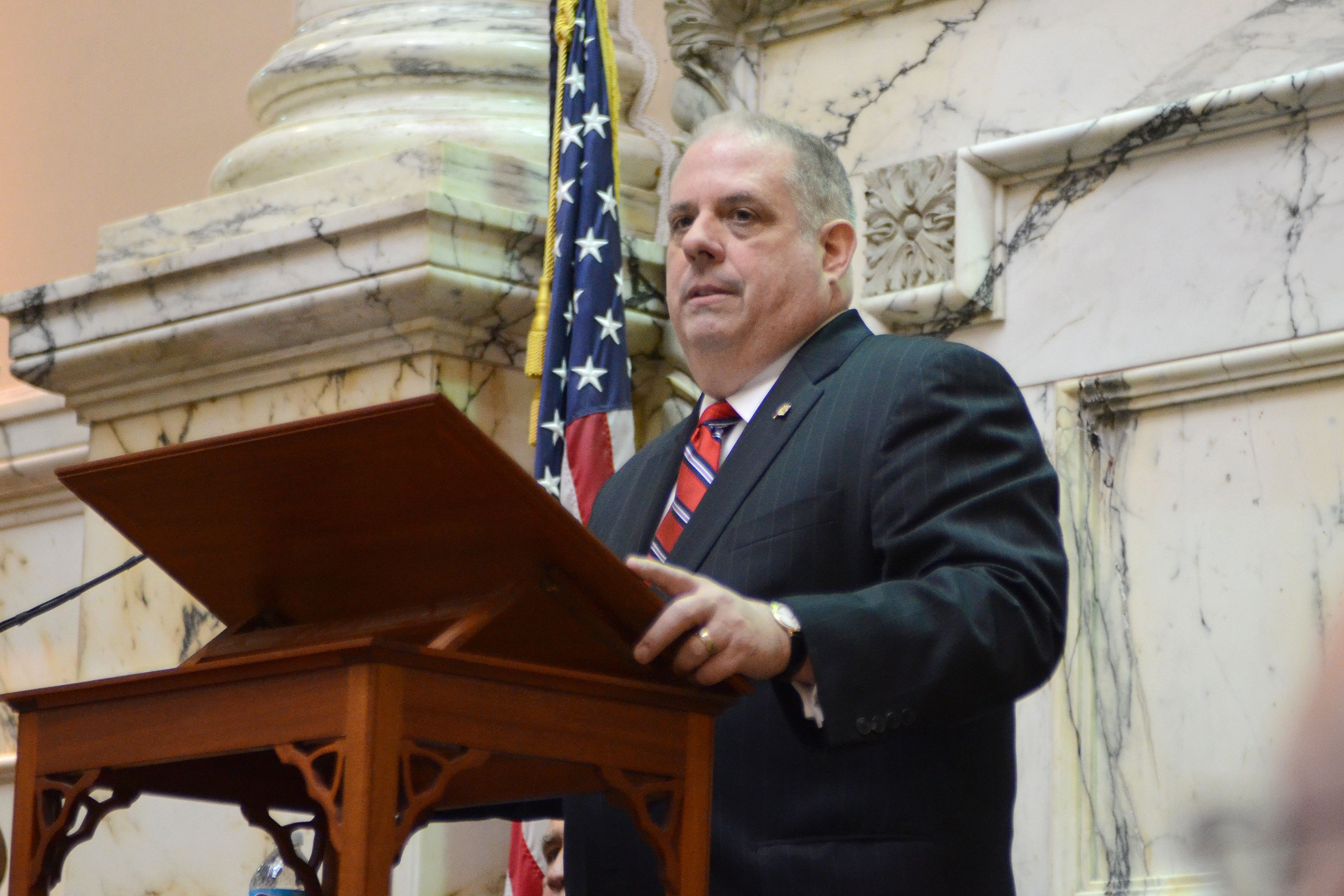Maryland Gov. Larry Hogan signed legislation Tuesday to reform the Board of Regents, guaranteeing that the widely-hailed bills will become law.
The legislation, which aims to increase the board’s transparency, follows the University of Maryland’s mishandling of football player Jordan McNair’s death and the regents’ alleged overreach into the affairs of this university. It requires the board to expand its membership from 17 to 21 and publicly stream its open meetings.
The board, which sets policy for the system’s 12 member institutions, became the subject of intense scrutiny in the fall for its actions following the released results of two investigations — one into the death of 19-year-old McNair, who suffered heatstroke during a May workout and died two weeks later, and the other into the football program’s culture.
Despite one investigation’s finding that the university’s trainers had failed to identify McNair’s condition and treat him properly, the regents reportedly recommended the school retain them.
[Read more: USM Regents chairwoman backs legislation to reform the board]
In an October press conference, then-regents chair James Brady also recommended that the university keep football coach DJ Durkin and athletic director Damon Evans on staff. This came after the board had noted widespread abuse in the football program in the other investigation, but failed to recognize its culture as “toxic,” contrary to prior reports by ESPN.
During the same press conference, university President Wallace Loh announced his plans to retire in June 2019 — and a day later, he fired Durkin. Reports later surfaced that the regents had told Loh they’d fire him if he didn’t retain Durkin, despite the fact that the board has no control over personnel decisions other than hiring and firing university presidents.
These moves represented a “complete disregard for transparency and shared governance,” Student Government Association president Jonathan Allen said at the legislation’s hearings in Annapolis. He was joined by board chairwoman Linda Gooden in voicing support for the bills at the statehouse.
The legislation, which passed unanimously on the House and Senate floors, requires the four new spots on the board be filled by the state commerce secretary, two appointees from statehouse leaders and a nonvoting student member, in addition to the current voting student member.
[Read more: Following the investigation into Maryland football’s culture]
At least one regent will be required to have a background in higher education administration, one in finance and one in diversity and workplace inclusion. The bills also double the student regents’ terms to two years, which will allow the nonvoting student regent to gain experience on the board before becoming a voting member.
“It provides considerable oversight and reforms both to the openness of the process and to the structure for the board itself,” Del. Ben Barnes (D-Anne Arundel and Prince George’s), the bill’s sponsor in the House, told the Diamondback earlier this month. “We are going to see a much more open, cohesive board.”
Freshman computer science major Tilak Patel praised the legislation for increasing the transparency of the board — a step that is especially important, considering its status as a governmental body.
“We’re ultimately the ones being affected by their decisions,” he said. “So if the general public knows what they’re thinking, that would be beneficial.”
Hogan signed the legislation along with 172 other bills on Tuesday, in the second of four planned signing sessions after the end of the General Assembly session.



